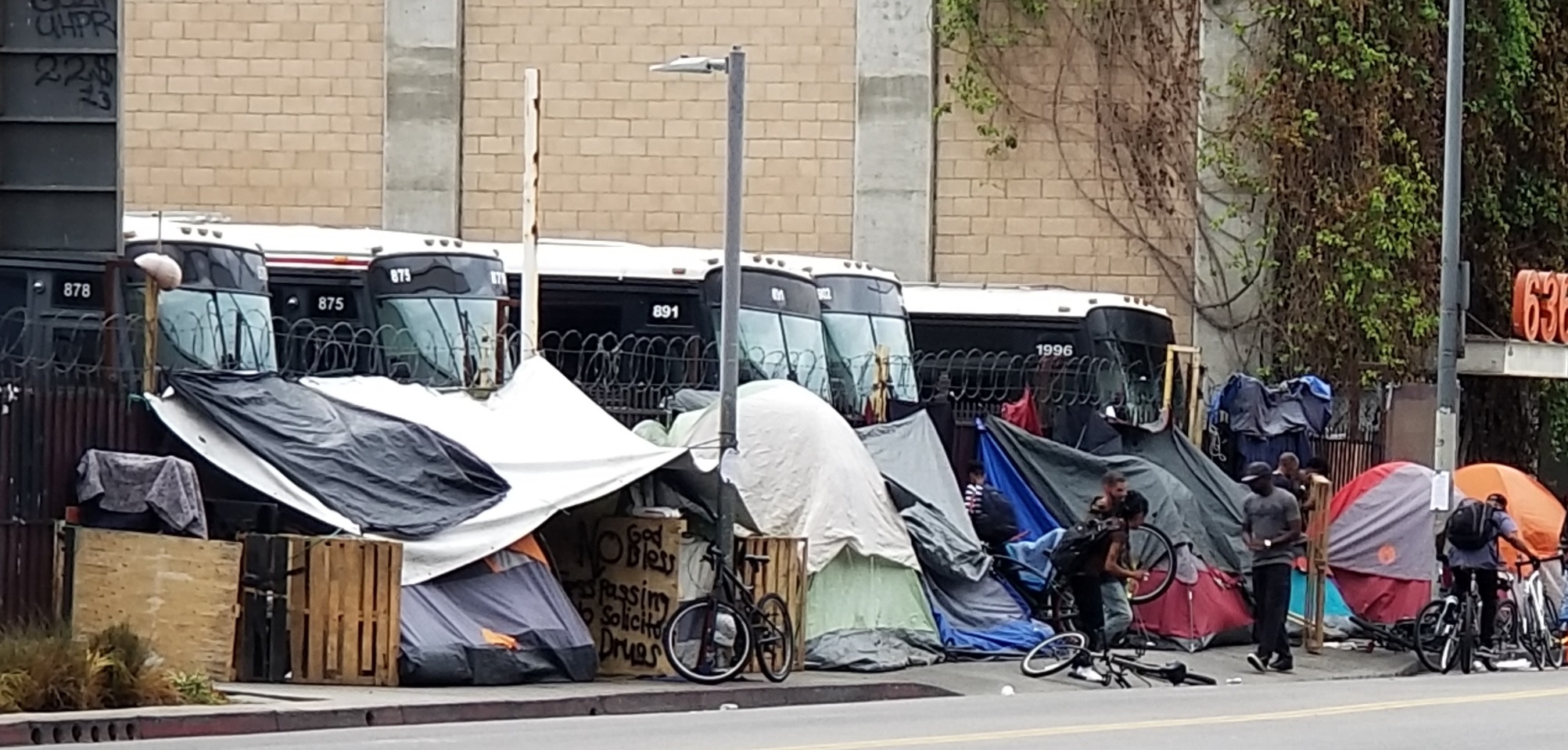[dropcap size=big]H[/dropcap]omeless advocates and people experiencing homelessness let out a sigh of relief as news broke Monday morning that the Supreme Court would not hear the Martin vs. Boise case, a landmark ruling that applies to all western states and grants people the right to sleep on the streets if there isn’t enough housing.
This comes three months after the L.A. County Board of Supervisors voted to file an amicus brief in favor of appealing Martin vs. Boise. The motion passed with a 3-2 vote and left Supervisors Solis and Kuehl as the only representatives to oppose the motion.
The decision to file the brief came at a time when the president suggested that L.A. should create camps to contain the homeless in addition to creating a statewide homeless “task force,” an idea that didn’t sit well with most homeless advocates and people experiencing homelessness. They argued that such a plan would lead to unhoused residents being further criminalized. The 9th district ruling in the Martin vs. Boise case found that arresting people for not having a place to live violated 8th amendment rights.
In the amicus brief filed by the City of Los Angeles, the city argued that “Sweeping language brings uncertainty to the city’s duty to maintain its public spaces.” Mike Feuer, the Los Angeles City Attorney also filed a separate brief that said, “Boise’s rationale sweeps too broadly, and the opinion is internally inconsistent and unclear.”
Had the Supreme Court overturned the ruling, the decision would have impacted cities across the country. For now, homeless people in L.A. are allowed to sleep on sidewalks between 9 PM and 6 AM because of a 2006 ruling. The agreement bars sitting or lying on the streets during the day. The reality, of course, is that on any given day or night, there are thousands of encampments set up across the city.
Those in favor of the Martin vs. Boise decision argued that even if the Supreme Court overturned the ruling, there would be no way to realistically enforce such a ban. There is simply nowhere else for people living on the streets to go. Not only is L.A. the least affordable housing market in the country, but the city is also lagging on its 2016 promise to build 10,000 permanent supportive housing units in 10 years. None of those units have opened as of yet.
Many see the Supreme Court’s decision as a bittersweet victory though, we still have a long way to go. Unhoused people are already routinely criminalized for violating the city’s “sit and sleep law,” L.A. Municipal Code 56.11, and other ordinances that unhoused residents say make it more difficult for them to get out of homelessness.
Despite evidence that says criminalizing the homeless doesn’t work, city legislators have routinely sided with housed residents that would rather not see the homeless crisis play out in their backyards.
Earlier this year, LAHSA, the city’s lead agency when it comes to homelessness found that criminalization and encampment sweeps only push people further into homeless, “Fines and citations, encampment clearings and other municipal practices and policies that disrupt and displace people create additional barriers and setbacks for people experiencing homelessness, making it more likely that
People will remain homeless even longer.”
But the sweeps continue.
In June of this year, the city launched the CARE program, a mayor-lead initiative to bring more services like bathrooms and even job opportunities to homeless encampments. These sweeps are carried out by L.A. Sanitation on a daily basis across parts of the city, but other sweeps go on as well, sweeps that leave homeless people in handcuffs and without vital supplies that they depend on and can help them get off the streets.
Last week, nearly a dozen cops swarmed an encampment early in the morning to make way for a sweep on 4th Street near Shatto Place in Koreatown, according to advocates with Street Watch L.A., a homeless outreach group that monitors sanitation sweeps. The unhoused residents of the encampment were ticketed and detained momentarily for having their tents up during the day.
Yesterday Supervisor Mark Ridley-Thomas tweeted, “Supporting the City of Boise’s position to appeal to the Supreme Court was never an attempt to criminalize the homeless; rather it was a pursuit of a legal framework that is clear—in comparison to a status quo that is ambiguous and confusing.”
This was a major win for homeless advocates and people experiencing homelessness but nobody is celebrating.
In actuality, criminalization is central to the Martin vs. Boise case and the ruling clearly found that “as long as there is no option of sleeping indoors, the government cannot criminalize indigent, homeless people for sleeping outdoors, on public property, on the false premise that they had a choice in the matter.”
Despite evidence that says criminalizing the homeless doesn’t work, city legislators have routinely sided with housed residents that would rather not see the homeless crisis play out in their backyards. The Supreme Court won’t hear the Martin vs. Boise case, but locally city leaders are still deciding whether or not to amend 56.11 and other laws that make it harder for homeless people to get off the streets and we’re still struggling to build housing.
This was a major win for homeless advocates and people experiencing homelessness but nobody is celebrating.







